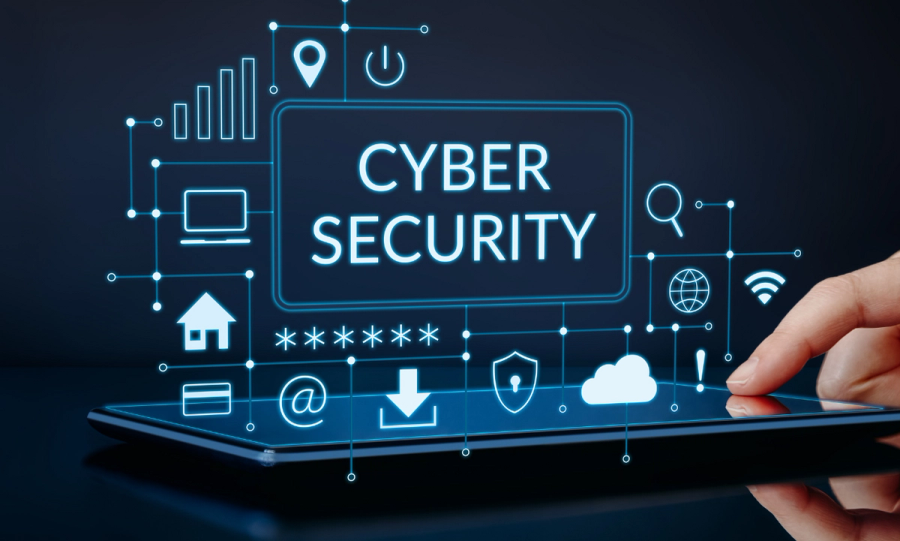
As technology advances, it is no surprise that cybersecurity risks continue to rise. With the increasing number of cyber attacks and the damage they can cause, it is essential to implement measures to keep you safe online. However, most people tend to make common cybersecurity mistakes that put them and their data at risk. Here are some recommendations on how to protect yourself online.
1. Never Use Weak Passwords
Using weak passwords is one of the most common mistakes people make regarding cybersecurity. Due to the ease of remembering, many people use common passwords such as their date of birth, pet’s name, or their name. But this is a huge mistake. Hackers can easily crack weak passwords using brute force attacks and gain access to your important accounts. To avoid this, use strong passwords at least eight characters long with a combination of upper and lowercase letters, symbols, and numbers. Consider using a password manager to store your passwords securely.
2. Regularly Update Software And Operating Systems
Failure to update software and operating systems is another mistake that most people make. Hackers constantly seek vulnerabilities in out-of-date software and operating systems that they can exploit. Updated versions come with security patches that address these vulnerabilities and improve the overall security of your device. Therefore, it is essential to regularly check for software and operating system updates to ensure they are current.
3. Do Not Click On Suspicious Links
Phishing scams are becoming more sophisticated, and many people still fall victim to them. Most people click on links without verifying the source, exposing them to malware and viruses. Do not open email attachments or click on links from unknown sources to avoid this. Also, look for red flags such as spelling errors, grammatical mistakes, or generic greetings.
4. Implement Two-Factor Authentication
Two-factor authentication (2FA) provides an additional layer of security for your accounts. You must provide two credentials to access your account: a password and a code sent to your phone. Most people do not use this feature which makes their accounts vulnerable. Two-factor authentication significantly reduces the chances of unauthorized access to your accounts, even if your password is compromised. It is advisable to enable 2FA on all accounts that support it.
5. Use A Secure Wi-Fi Network
Unsecured Wi-Fi networks are a cybercriminal’s playground. Not securing your Wi-Fi network makes it accessible to anyone nearby, exposing your data to risks. Your Wi-Fi network should be connected with a strong password and encrypted with the latest security protocols. Avoid using default passwords, as they are easy to crack.
6. Do Not Leave Data Unencrypted
Data encryption is an essential cybersecurity measure, yet many people fail to encrypt their data. Encryption ensures that unauthorized persons cannot access your data, even if they gain access to your device. It is recommended to use end-to-end encryption for messaging apps and to encrypt sensitive data such as tax returns, financial statements, and passport copies.
7. Have A Backup Strategy In Place
Data loss can occur in many forms, such as theft, malware, hardware failure, or accidental deletion. Not having a backup strategy in place can leave you in a difficult situation if your data is lost or compromised. Data backup should be a priority to avoid the loss of essential data. Use cloud services or external hard drives to back up data regularly.
8. Secure Social Media Accounts
Social media is a goldmine for cybercriminals. Many people do not secure their social media accounts, exposing their personal information. Adjust the privacy settings of your social media accounts to control who has access to your data. Also, avoid accepting friend requests from unknown persons and be wary of public Wi-Fi when accessing your accounts.
9. Use Antivirus Software
Antivirus software is essential to detect, prevent and eliminate malicious software such as viruses, worms, and Trojans. Many people do not use antivirus software because they believe they are safe or do not want to pay. However, the cost of not having antivirus software can be devastating. There are free antivirus software such as Avast, AVG, and Bitdefender that can provide essential protection.
Conclusion
Cybersecurity is a continuous process that requires vigilant attention. Avoiding these common cybersecurity mistakes is crucial to protect your sensitive data and personal information. Cyber-attack threats are real, and we cannot afford to be careless. It is essential to be proactive and educate ourselves on the best practices of cybersecurity. Stay safe, everyone!